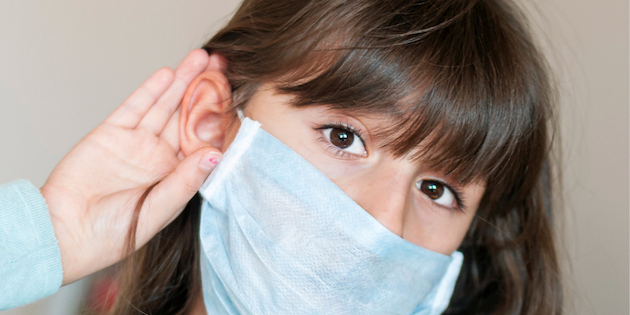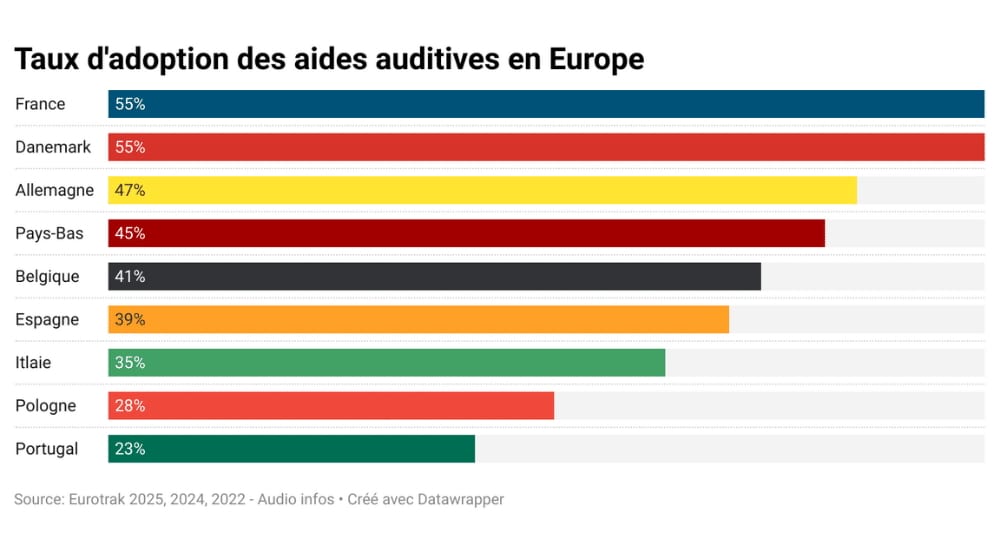Early review draws blank on COVID-19 effects on audio-vestibular system - more research needed
COVID-19
Hurried UK research into potential long-term hearing health associations among COVID-19 cases has found only insignifant evidence. The Manchester University team investigating will carry out higher-quality studies in the near future.

Following up on media reports of links between hearing loss and COVID-19, the researchers— Ibrahim Almufarrij, Kai Uus, and Kevin Munro, all from the Manchester Centre for Audiology and Deafness, School of Health Sciences, University of Manchester—carried out a "rapid" (over three weeks from start to submission) systematic review of available evidence, now published in the International Journal of Audiology.
In his article explaining the research in the scholarly periodical, The Conversation, Director of the Manchester centre, Kevin Munro, underlined: "it is well known that viruses such as measles, mumps and meningitis can cause hearing loss. And coronaviruses can cause peripheral neuropathy, damage to the nerves that carry information to and from the brain. It is possible, in theory, that COVID-19 could cause auditory neuropathy,"
"Auditory neuropathy (ANSD) has been linked with Guillain-Barré syndrome, an acute immune disease that affects central and peripheral nerves. Importantly, COVID-19 is also associated with Guillain-Barré syndrome," continued Munro.
The rapid review, however, had only a slim study sample meeting its inclusion criteria: after rejecting more than 2300 records, the sample was just five case reports and two cross-sectional studies.
Among the difficulties faced by this early investigation is low (below 1%) incidence of reported audio-vestibular symptoms, "indicating that either these symptoms are uncommon or attention, so far, has concentrated on life-threatening symptoms". Another problem is that the comprehensive audiological assessment required for ANSD diagnosis is more difficult to achieve under lockdown conditions, so cases linked to COVID-19 may not have been found.
It is also unclear if the "significant number of central and peripheral nervous system manifestations" reported—which include cerebrovascular disease, impaired consciousness, and impaired vision—are a complication of COVID-19 or side effects of medication.
According to the research results, "no records of audio-vestibular symptoms were reported with the earlier types of coronavirus (i.e. severe acute respiratory syndrome [SARS] and Middle East respiratory syndrome [MERS]). Reports of hearing loss, tinnitus, and vertigo have rarely been reported in individuals who tested positive for the SARS-CoV-2".
"Reports of audio-vestibular symptoms in confirmed COVID-19 cases are few, with mostly minor symptoms, and the studies are of poor quality. Emphasis over time is likely to shift from life-threatening concerns to longer-term health-related consequences such as audio-vestibular dysfunction."
The researchers concluded that both acute effects and long term risks of COVID-19 on the audio-vestibular system require high-quality studies. "We need to be prepared to act," stressed Prof. Munro.
Source: The Conversation


